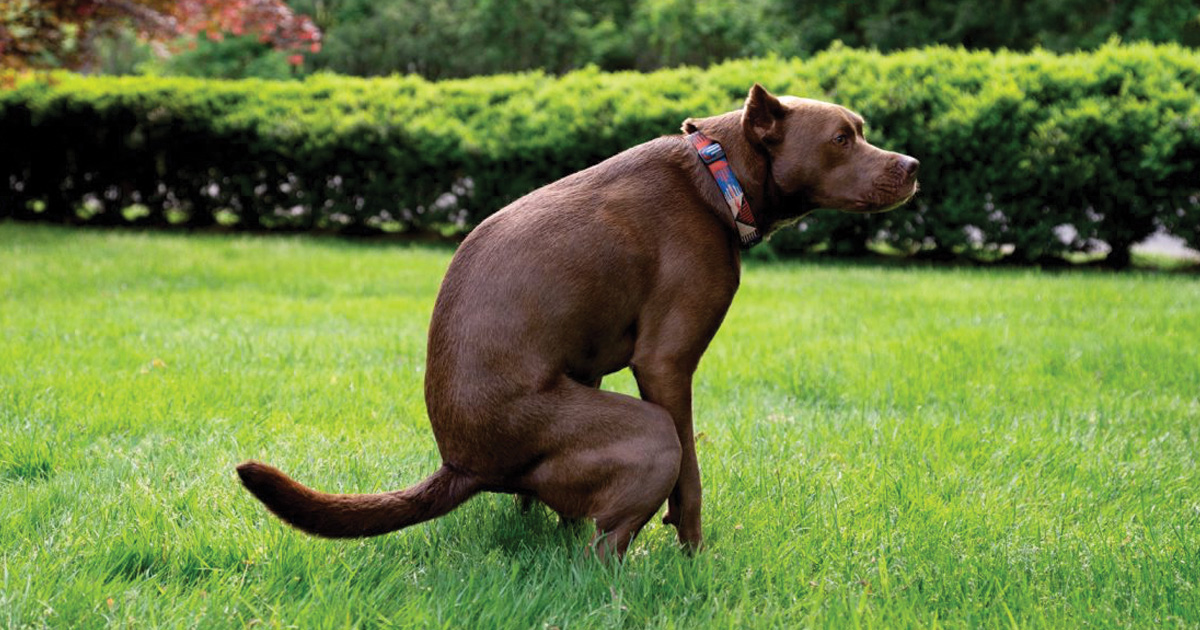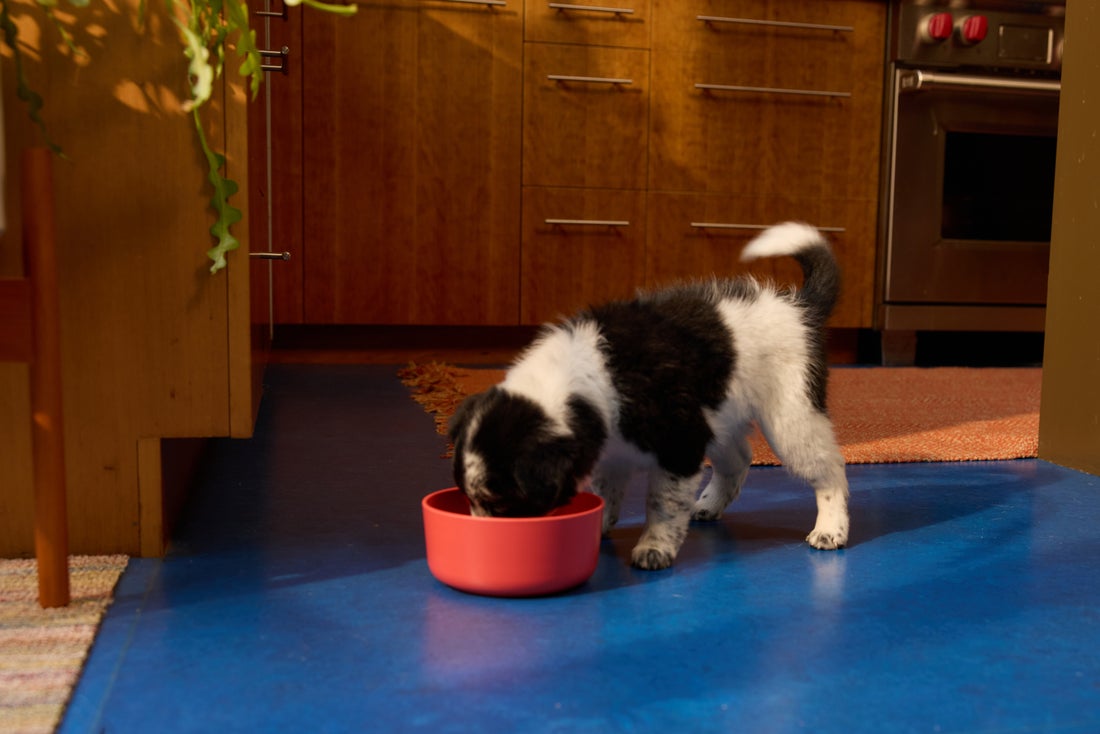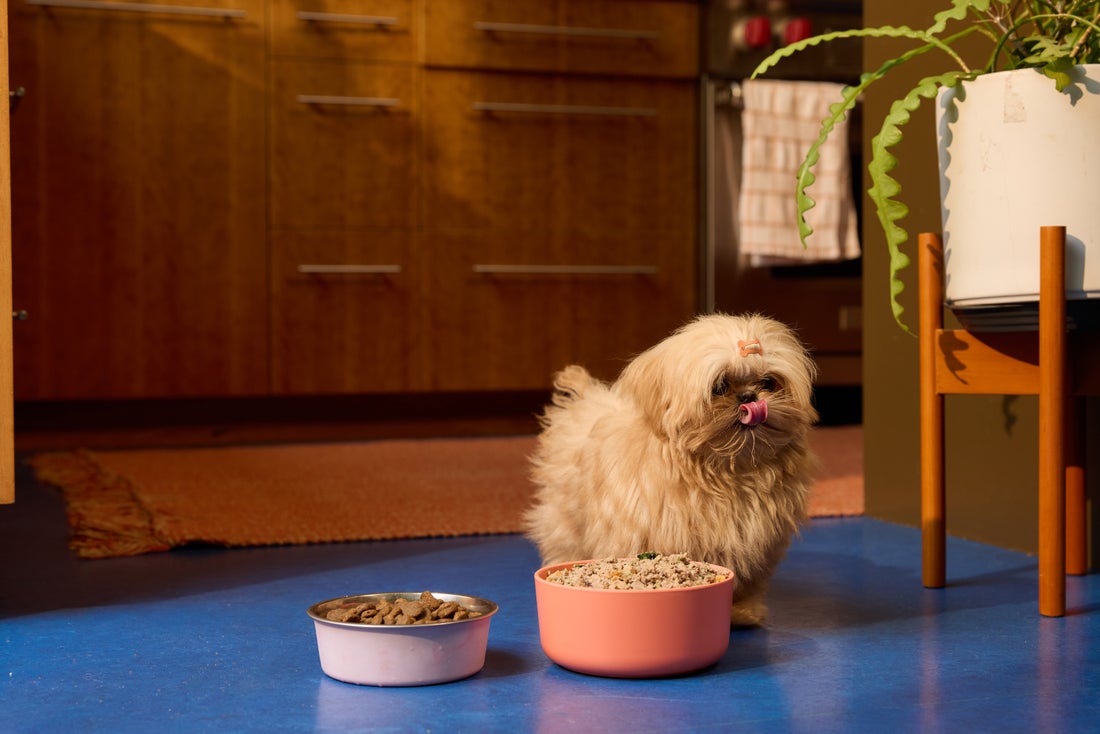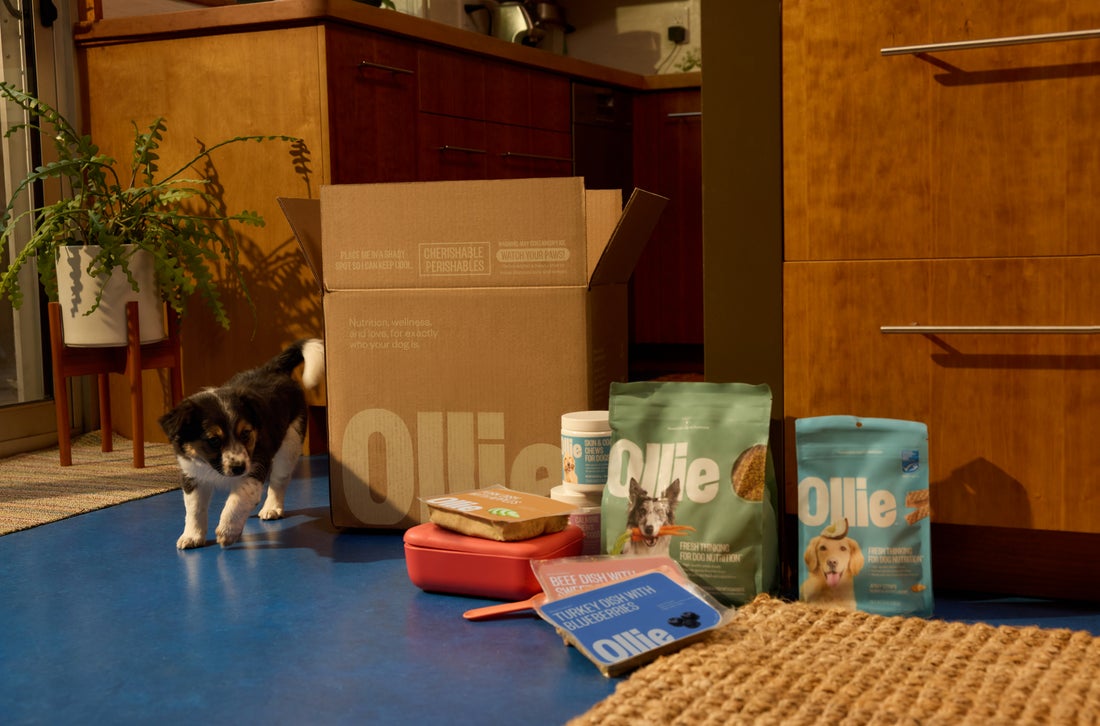Hey Ollie blog readers! We’re offering you an exclusive 60% OFF your starter box! Try now!
As a conscientious dog owner, you’re probably quite familiar with your dog’s poop. In addition to immediately bagging and safely discarding your pup’s piles out of respect for others and the environment, you should learn about your dog’s normal stool appearance so you can recognize changes that indicate their digestive system is off balance. Mucus in dog poop is a common type of stool that most dogs will struggle with at some point in life.
Although an occasional slimy film may be completely normal, mucus in dog poop can also signal a serious problem. In this article, we explain the natural purpose of mucus in your dog’s digestive tract, why mucus may appear in your dog’s poop, and how to recognize signs that warrant veterinary attention.
What Does Mucus in Dog Poop Look Like?
Mucus in dog poop often appears as a slimy, jelly-like coating on the stool. It can be clear, white, yellow, or even tinged with blood, depending on the underlying cause. In some cases, mucus may be stringy or form a film around the poop. While a small amount of mucus is normal, excessive mucus, especially when accompanied by diarrhea, changes in stool color, or other symptoms, may indicate an issue such as dietary intolerance, infections, or gastrointestinal inflammation.
What To Do If Your Dog Is Pooping Mucus
If your dog has mucus in its poop, start by monitoring their behavior and overall health. If they are eating, drinking, and acting normally, the mucus may be temporary and resolve on its own. However, if mucus persists for more than a few days, or if it’s accompanied by diarrhea, vomiting, weight loss, or lethargy, consult your veterinarian. Keep a sample of the stool for analysis, as it can help diagnose infections, parasites, or other underlying conditions. Adjusting your dog’s diet, ensuring proper hydration, and addressing any food sensitivities may help prevent future occurrences.
How to Identify Mucus in Dog Poop
Mucus in dog poop is generally slimy, having a jelly- or film-like appearance. The substance may appear as an isolated blob or encase the stool like a wrapper. This jelly-like film can vary in color from off-white to yellow, or may appear slightly green. Mucus may also contain black or red blood, indicating upper or lower digestive tract bleeding and irritation.
To learn how to assess your pup’s stool, read our guide to Understanding Your Dog’s Poop
How Much Mucus is Normal in Dog Poop?
If your pup’s poop contains mucus, don’t panic. Although this jelly-like film may be gross, take a second look and assess the stool quality. As long as your dog’s stool is well-formed and brown, and their next bowel movement is normal, occasional scant mucus is not cause for concern. However, frequently appearing jelly-like clumps, pools of mucus, or a skin-like coating around the stool can signal inflammation in your dog’s colon (i.e., colitis).
Colitis is not a diagnosis. However, this sign of inflammation indicates your dog has an underlying problem that may be serious. Only a licensed veterinarian can diagnose your dog’s condition and prescribe effective treatment.
If your dog’s stool contains only a small amount of mucus, the Ollie digestion health screening is a great way to assess your pup’s digestive health between routine veterinary visits. This Ollie Member exclusive is available via the mobile app, but you should only screen your dog if you know they are otherwise healthy. The digestion screening is not intended as a replacement for professional veterinary testing or care. If your dog is exhibiting urgent or emergent illness signs, forgo the digestion health screening, and call your pup’s veterinarian immediately.
Learn how our Ollie digestion health screening provides the full scoop on your pup’s poop.
Common Causes of Mucus in Dog Poop
Your dog’s gut is responsible for food digestion, absorption, and waste production, and it is also a significant portion of their immune system. Together, these functions create a highly sensitive environment that reacts in many ways to various causes:
Diet-related Causes
- Unfamiliar foods can disrupt your pup’s normal digestion and trigger troublesome inflammation. Common dietary triggers include:
- Salty, sugary, or fatty foods (e.g., table scraps, rich dog treats)
- Abrupt diet changes (e.g., switching brands, formulas, or primary proteins)
- Inappropriate items from the yard or street (e.g., trash, rotting food, wildlife scat)
Feeding your dog a varied diet can promote their health, but ensure you introduce new foods gradually. Feeding your dog a consistent diet is the best way to minimize digestive upset risk, especially if your pup has a sensitive stomach.
Parasitic Infections
By coming into contact with infected stool, soil, or water, your dog can contract gastrointestinal (GI) parasites, such as roundworms, hookworms, whipworms, and Giardia, which invade your pup’s intestines and irritate their sensitive GI lining. Parasitic infections may cause vomiting and abnormal bowel movements, including loose stool or diarrhea, which may contain mucus. To ensure your dog receives a definitive diagnosis and effective treatment, your veterinarian should perform a fecal analysis. If your pup suffers from frequent parasitic infections, talk with your veterinarian about routine deworming, or try these at-home deworming remedies.
Bacterial or Fungal Infections
Imbalances in your pup’s GI flora (i.e., healthy bacteria) can disrupt digestion, and cause mucus to develop in your dog’s poop. Harmful microorganisms may include Salmonella, Clostridium, Echerichia coli, and yeast. Infections can occur if your dog comes in contact with spoiled foods or contaminated soil or water, or when an unrelated illness compromises your pup’s immune system. To prevent an affected dog’s human family members from developing a bacterial or fungal infection, your veterinarian should carefully and thoroughly address your dog’s condition.
Gastrointestinal Disorders
GI disorders are systemic conditions that disrupt normal digestive functions. In addition to mucus in your dog’s poop, GI disorders can cause other significant signs, including vomiting, abdominal distension (i.e., bloated or pot-bellied appearance), weight loss, abnormal stool color or consistency, diarrhea with blood, constipation, abdominal pain, gas, and appetite loss. Common canine GI disorders include:
- Inflammatory bowel disease (IBD)
- Cancer
- Gastroenteritis
- Hemorrhagic gastroenteritis (HGE)
Treatment will vary based on the underlying GI disorder’s cause and may require lifelong care or management (e.g., diet change, medication, lifestyle changes). Occasional relapses may occur.
Stress
Stress is a common but often overlooked cause for mucus in dog poop. If your pup is typically nervous, anxious, or undergoing significant stress, such as a change in their routine or home environment, they may be suffering from stress-induced colitis. Check out these common causes of stress in dogs to identify what may be troubling your pup. Try to reduce or minimize your dog’s exposure to these upsetting triggers, and feed them a bland diet for several days.
Read our guide to de-stressing your dog
Treatment for Mucus in Dog Poop
How you address the mucus in your dog’s poop will depend on its frequency, volume, and underlying cause. When in doubt, speak with your dog’s veterinarian before trying any of the following at-home care strategies. However, if your pup is showing more serious signs, or their poop contains excessive mucus, they need to have a veterinary exam.
Dietary Changes
If your dog is experiencing a minimal amount of mucus in their stool but showing no other illness signs, feeding them a bland diet for several days can help reset their system and calm any irritation. However, if their signs continue, a more permanent change may be necessary to prevent exposure to irritating ingredients and ensure maximum nutrient digestion.
How to Transition Your Dog’s Food
Probiotics and Supplements
Probiotics are beneficial bacteria that support natural GI and immune function, enhance digestion, and can help your pup’s digestive tract respond more resiliently to stress. If your dog’s poop has mucus, administering probiotics and other digestive supplements (e.g., enzymes, fiber) can help firm up loose stools.
When to Contact Your Vet About Mucus in Your Dog’s Poop
If you are concerned about the mucus in your dog’s poop, contact your veterinarian. Your dog’s veterinary team can help calm your worries or recommend an examination, depending on your pup’s signs.
If your dog is experiencing persistent, worsening, or severe GI disorder signs, contact your veterinarian right away. Your dog may have a serious condition if they have been exhibiting the following signs:
- Excessive mucus in their poop
- Loose stool, or watery or liquid diarrhea
- Unusual stool color (e.g., black, yellow, grey, green, red)
- Blood in the stool
- Vomiting
- Lethargy
- Appetite loss
- Abdominal pain (e.g., tenderness, rigidness, resting in a praying or stretched position with their hind end elevated)
Scant mucus that occasionally appears in your dog’s stool can indicate their digestive tract is functioning properly and is healthy. However, if your dog has persistent, slimy, jelly-like, or mucus-coated stools, you should promptly contact your pup’s veterinarian.
The Role of Mucus in Your Dog’s Digestive System
Mucus is a naturally occurring substance that coats the inside of your dog’s digestive tract. In addition to supporting a healthy microbiome (i.e., gut bacteria), this slick substance lubricates formed stool, helping it move smoothly and efficiently through the large intestine. From time to time, a small amount of mucus may appear in healthy normal stool.


Healthier ingredients,
tailored recipes, delivered
Get 50% of your first box of Ollie’s fresh
delivered meals today!
Tagged As:

The nutrition your dog needs,
the food they want.

Enjoying our articles? Subscribe our Newsletters and get new articles directly to your inbox
You might also like
23 June 2025
7 MINS READ
Is Fresh Dog Food Good For Picky Eaters?
Feeding a picky dog can feel like a daily battle. One day they eat, the next day they turn their nose up at the same exact meal. You’ve probably tried multiple brands, added toppers, even hand-f…
by Ollie Pets
23 June 2025
7 MINS READ
Can Fresh Dog Food Improve My Dog’s Coat and Skin?
If your dog is constantly scratching, licking their paws, or has a dull, flaky coat, it’s not just frustrating. It could be a sign that something’s off in their diet. Skin and coat issues a…
by Ollie Pets
23 June 2025
7 MINS READ
Can All Dog Breeds Eat Fresh Dog Food?
Every dog is different, but here’s the good news: with the right approach, fresh food can work for every breed. Whether you’ve got a couch-loving French Bulldog or a high-energy Border Coll…
by Ollie Pets







